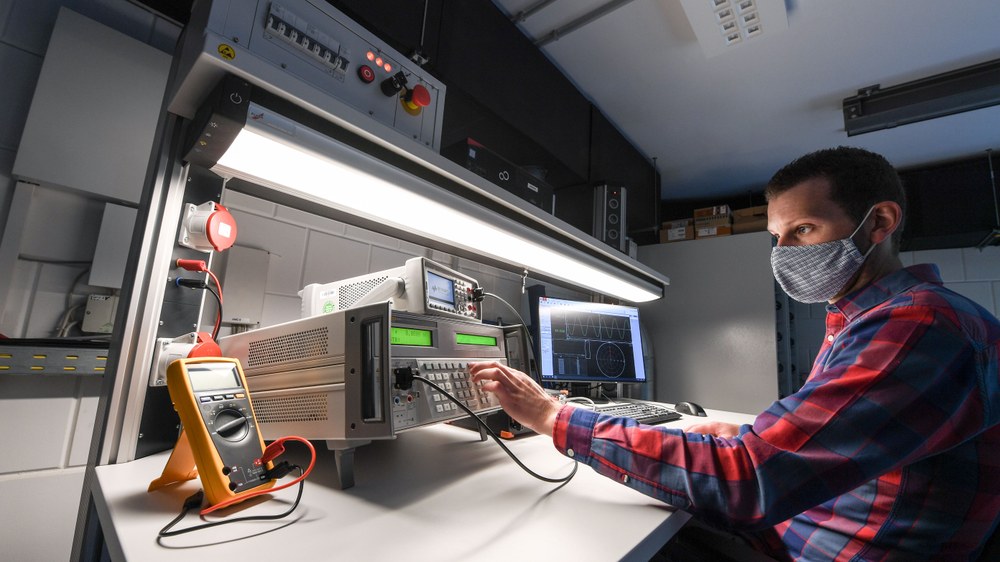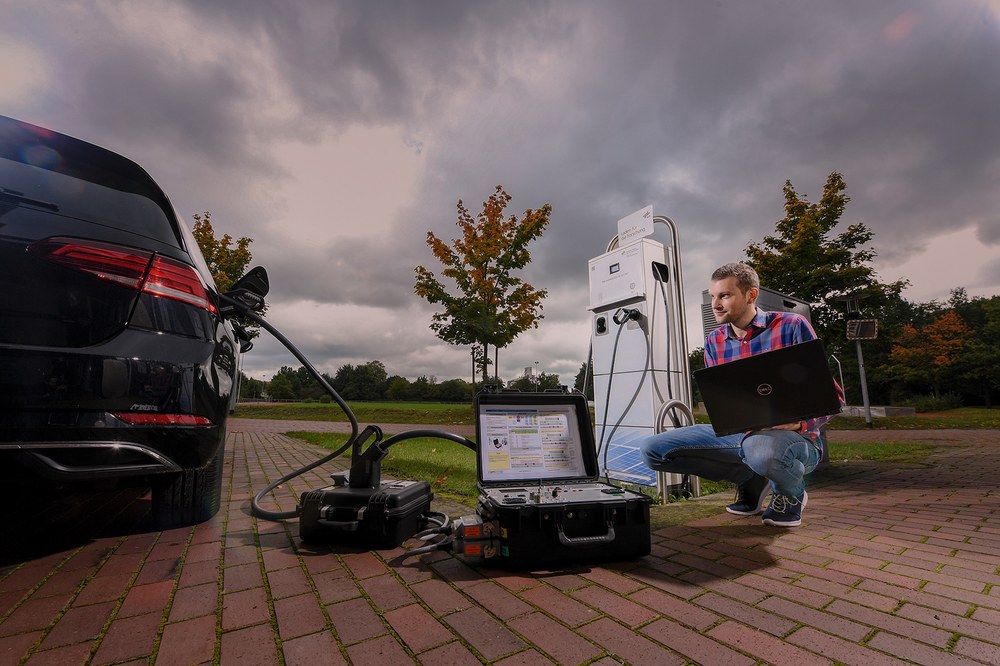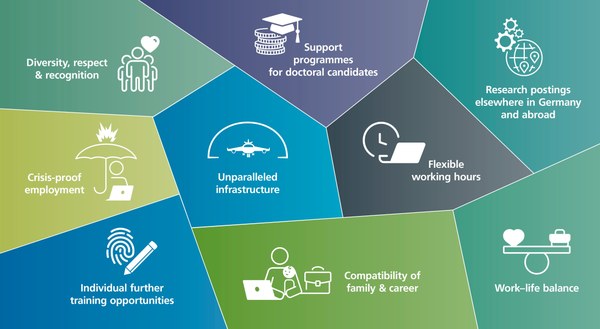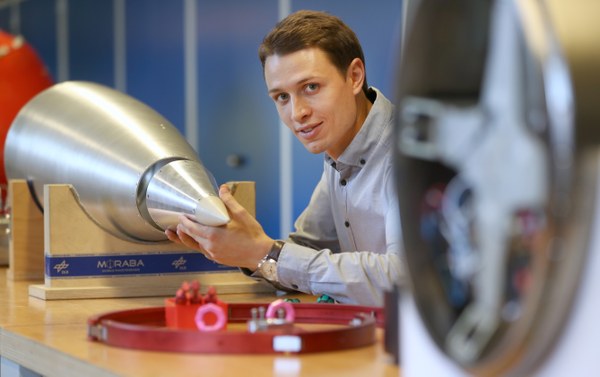Jan Petznik is making a real contribution to the success of the energy transition at the Emulation Centre for Networked Energy Systems (NESTEC), part of the DLR Institute of Networked Energy Systems in Oldenburg.
Our power grid is facing huge challenges. We are increasingly using renewable energies and dovetailing electricity, heat and mobility through sector coupling. Our research aims to bring the dynamic systems of energy production and consumption into harmony with intelligent, networked solutions.
In this context, my team from the Institute for Networked Energy Systems and I offer scientists a research platform that enables them to simulate ideas for the energy supply of the future and reproduce them in hardware. That way, we can help to shape a sustainable and cost-efficient energy transition.
„In the lab, we simulate and emulate the energy supply across sectors“
I wrote my master’s thesis in electrical engineering at DLR in 2017 and have been a research assistant at the Institute of Networked Energy Systems in Oldenburg since 2018. As a project and laboratory manager, I’m now planning a network of research laboratories here in Lower Saxony. My team is looking to pool areas of expertise and technical opportunities and harness the new research approaches that emerge. DLR offers the best possible conditions for achieving this.
With NESTEC, we have created a flexible platform where our staff can research future sustainable energy supply across disciplines. Here, researchers can try out new control strategies for future energy supply systems and test components in a realistic environment. The laboratory's immense potential comes from its ability to carry out real-time and hardware-in-the-loop simulations on a scale that is entirely new for us. We can operate up to 18 AC/DC grid simulators, 16 bidirectional DC sources, 10 PV inverters, a synchronous generator and various simulations of electrical cables on our own medium-voltage connection. Components with a total output of 1.2 megavolt-amperes (MVA) are installed in the 180-square-metre laboratory. Among other things, this set-up enables us to depict and examine urban districts with buildings, networks and charging stations in the laboratory, partly virtually and partly in reality. We are now able to calculate the potential loads on future network structures precisely and cost-effectively.

As laboratory manager, my job is to support my colleagues in implementing their ideas, develop the hardware and software according to current research areas and manage the running of the laboratory. That’s my contribution to ensuring that our projects run safely and reliably. I also keep an eye on the objectives and resources of the laboratory and develop its infrastructure to keep pace with the constantly changing research topics. I also contribute my expertise to assist with tests when needed.
„I'm gaining insight into a wide range of scientific projects“
Knowing that my work gives me broad insight into current energy research is a huge motivation every day. I’m able to think outside the box and engage in constant exchange with my colleagues. There’s an extraordinary sense of team spirit here. I experience the excitement of working on solutions and ideas, not just in my department, but even beyond our institute.
Recently, we successfully completed a 24-hour full-load endurance test with an HPC charging station; other innovative solutions for supplying electricity to e-charging stations are in the pipeline. Projects linked to grid stability, energy supply concepts for residential areas and DC grids are also being prepared. Among other things, we are investigating the use of novel DC systems for efficient energy supply on ships. Meanwhile, the ‘Energetic Neighbourhood District: Oldenburg Air Base’ (ENaQ) project is researching sustainable and local energy exchange at the neighbourhood level. This project brings together energy producers and consumers into a local network for electricity, heat and mobility.
How do I see the future of electrical energy supply?
In the future, there will only be a handful of conventional power plants as the main generators, or they will have been converted into climate-friendly power plants through innovative technology. Decentralisation means that the majority of renewable energy producers and consumers will have to actively participate in the stable and secure operation of the grid. By coupling the electricity, heat and mobility sectors, it will be possible to share and store climate-friendly generated energy and thus use it as efficiently as possible.
Are you keen to make a difference by applying your knowledge at the Institute for Networked Energy Systems? Search our current job listings.
Like Jan Petznik, all researchers at DLR pursue their tasks with curiosity and passion every day. They are free to focus all their energy on research and carry out pioneering work in the areas of aeronautics, space, energy, transport, security and digitalisation.
What do our researchers value at DLR?
- a personnel policy that offers equal opportunities and is family-friendly
- flexible working time models and 30 days annual leave
- further education, communication and leadership training
- comprehensive services for childcare and dependents in need of care, provided by an external cooperation partner
- a management culture based on respect
Would you like to bring your expertise and innovative drive to DLR?



